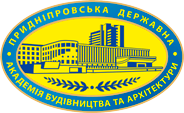Scientific profile

Head of the Department of Ecology and Environmental Protection
Doctor of Technical Sciences (06.21.01 – environmental safety, 2019)
Associate Professor (2009)
Tetiana
YAKOVYSHYNA
Contacts and CV
Research
Current research
State Scientific Theme No 0121U107480 “Scientific foundations of ensuring the ecological safety for technogenically burdened urban ecosystems” (for 2021-2023), Contribution – “Development of the soil assessment methodology for ensuring ecological safety of technogenic loading urban ecosystems”, Function – Scientific Head.
More
Past research
State Scientific Theme No 0116U004746 “Ecological monitoring of components of technologically loading urban ecosystems” (for 2016-2020), Contribution – “Development of scientific bases for monitoring system improvement of hazardous compounds migration in soil of urban ecosystem”, Function – Task Manager.
More
Expertise Summary
Ecological monitoring of urban ecosystems soils, classification and assessment of anthropogenically disturbed soils; sustainable urban ecosystems, contamination of urban soil by the heavy metals; ecological risk of soil contamination; technologies of environmental protection, restoration of urban soils through the creation of sustainable phytocenoses; phytoextraction and phytostabilization of soil.
Publications
Articles
1. Yakovyshyna T. Integrated Approach of Phytostabilization for Urban Ecosystem Soils Contaminated with Lead. Environmental Research, Engineering and Management. 2021. № 2. P. 43-52. (Видання з бази Scopus, DOI: 10.5755/j01.erem.77.2.28633)
2. Шматков Г. Г., Яковишина Т. Ф. Система показників комплексної оцінки поліелементного забруднення важкими металами ґрунтів урбоекосистеми. Екологічні науки (Ecological sciences). – 2018. – Вип. 1(20), Т. 2. – С. 25-29.
The complex assessment system of the contamination by the heavy metals of the urboecosystem soils has been developed by using mathematical statistics methods to attract indicators that take into account the polyelemental nature of the artificially created geochemical anomaly, phytotoxicity and the level of the environmental risk. The expedient using of the phytotoxicity index has proved to the urboecosystem soils as a result of close back correlation and regression equations with respect to the imbalance coefficient. The degree of environmental hazard of the soil contamination by the heavy metals is recommended to be determined with the help of potential environmental risk, due to the presence of a close correlation with integrated indicators of the polyelemental contamination and regression equations with high reliability of approximation.
3. Шматков Г. Г., Яковишина Т. Ф. Комплексний підхід до відновлення ґрунтів урбоекосистем, забруднених катіонами металів. Екологічні науки (Ecological sciences). – 2018. – Вип. 3(22). – С. 101-105.
The complex approach to the soil restoration of the urban ecosystems contaminated by the metal cations and the principle of selecting their constituents has been worked out taking into account the anthropogenic loading level and destruction degree, with the joint application of the reproduction measures on of their ecological functions and toxicity elimination. The most effective combination of constituent technologies has been established for phytostabilization – plant-deconcentrator + ameliorant + rooting device + microbiological preparation; for phytoextraction – plant-phytoextractor + effector of phytoextraction + growth stimulator + nitrogen mineral fertilizer. The dosages of ameliorant and effector of phytoextraction have been justified with adsorption coefficient of the soil-ward complex.
4. Петрук Р. В., Яковишина Т. Ф. Аналіз екологічно безпечних методів відновлення забруднених пестицидами ґрунтів (Analysis of the environmentally friendly restoration methods of pesticide-polluted soils). Екологічна безпека та збалансоване ресурсокористування (Ecological Safety and Balanced Use of Resources). 2019. № 2(20). С. 102-111. (https://doi.org/10.31471/2415-3184-2019-2(20)-102-111).
5. Яковишина Т. Ф. Удосконалення методології бонітування ґрунтів урбоекосистем для оцінювання ступеня їх екологічної безпеки. Екологічні науки Ecological sciences. 2020. Вип. 3(30), Т. 2. С. 25-29. (DOI https://doi.org/10.32846/2306-9716/2020.eco.3-30.4)
6. Яковишина Т. Ф. Використання показників екологічного ризику для оцінювання ступеня небезпеки забруднення сполуками металів ґрунтів урбоекосистем. Екологічні науки (Ecological sciences). 2022. Вип. 3(42), С. 67-71. (DOI https://doi.org/10.32846/2306-9716/2022.eco.3-42.11)
Monograph
Яковишина Т. Ф. Бонітування техногенно навантажених ґрунтів урбоекосистем. Scientific developments of Ukraine and EU in the area of natural sciences: Collective monograph. Riga: Izdevniecība “Baltija Publishing”, 2020. 757 p. (https://doi.org/10.30525/978-9934-588-73-0/2.17).
Courses
1. Biotechnologies in ecology
Typical scheme and main stages of biotechnological production; biological treatment of waste water; biosorption of heavy metals from wastewater and soil; biodegradation of oil in water; biocomposting of solid waste.
2. Bioecological aspects of the geological environment
Cycles of chemical elements and their deformation due to anthropogenic activity; biogeochemical endemics; biogeochemical zoning.
3. General ecology and neoecology
Basic laws of ecology; trophic chains; ecological niche; succession; ecological system; pollution of environmental components; self-purification of the atmosphere, hydrosphere and pedosphere.
4. Radiobiology and radioecology
Natural and anthropogenic sources of ionizing radiation; systemic response of the human body to irradiation; radiation sickness (acute and chronic); radioresistance of species of various taxa; radio protectors; protection from radiation damage.
5. Protected business
Nature reserve fund and its classification; Black, Red and Green books (lists); ecological network; international acts of nature protection.
6. Environmental impact assessment
The procedure, order and features of the environmental impact assessment for the planned activity; process participants and their functions; features of determining impacts to recipients.
7. Pedology
Soil formation; organic and mineral substances of the soil; soil regimes; soil classification; distribution on the territory of Ukraine; anthropogenically transformed soils; soil pollution.
8. Ecotrophology
Environmental safety of food products; theories and concepts of nutrition; digestion; poisoning; ecological risks due to food contamination with non-carcinogenic and carcinogenic substances.
9. Ecological risk of the waste using
Waste classification; waste management in the urban ecosystem; life cycle; determination of ecological risk of the waste using in various branches of production.
10. Biometrics
Peculiarities of ecological research; dispersion, correlation and regression analysis of data; error and its permissible limits.
11. Methodology and organization of scientific research
The process of cognition; concepts, principles, features of planning, methods, structure and technologies of theoretical and experimental research; ethics of scientific research; peculiarities of the methodology and organization of ecological research.
